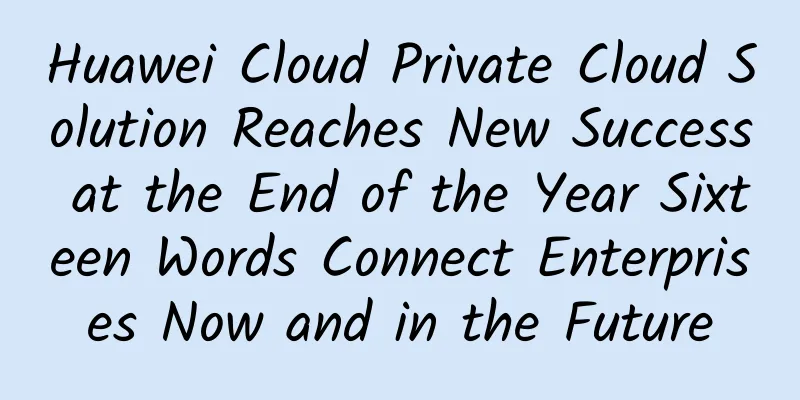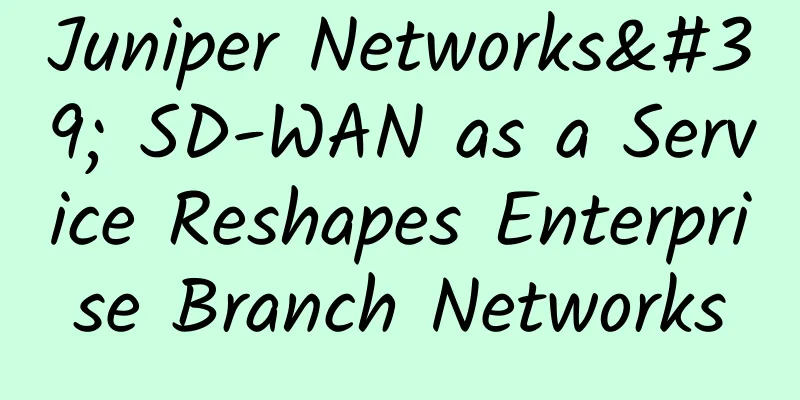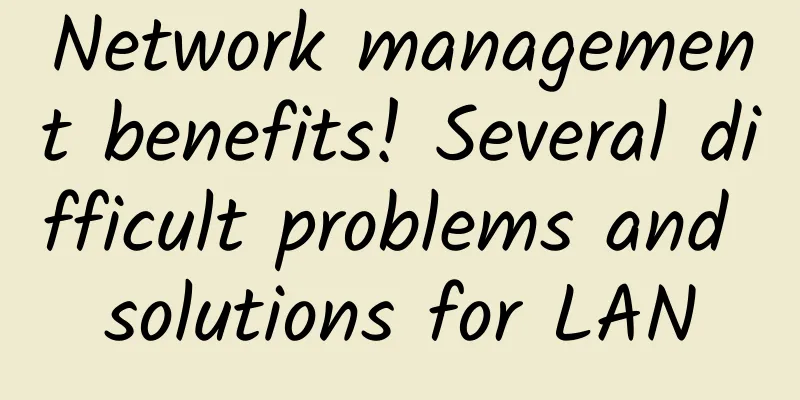Huawei Cloud Private Cloud Solution Reaches New Success at the End of the Year Sixteen Words Connect Enterprises Now and in the Future

|
[51CTO.com original article] Huawei is a company that is particularly patient - this is the feeling of the reporter after attending the Huawei Cloud Private Cloud Solution Communication Meeting at the end of 2017. Yes, you read that right, it is Huawei Cloud's private cloud. Starting from March 2017, 10 months after Huawei's high-profile promotion of public cloud, Huawei Cloud took its time to "bloom two flowers, each showing its own strength" to show everyone its strong strength in the private cloud market. Completely different from public cloud, in the field of private cloud, Huawei is the first batch of pioneers to seize the market opportunity. He told everyone with indisputable data: Huawei Cloud has long been the leader in the field of private cloud. "Although Huawei Cloud has emphasized public cloud strategy a lot this year, Huawei Cloud private cloud solutions are also an important part of Huawei Cloud. We emphasize the concept of one cloud. How to connect the entire series of private cloud and public cloud into one, form an overall solution, and help enterprises connect from now to the future, this is a question we have been thinking about." Ma Li, President of Huawei IT Cloud Computing and Big Data Platform Product Line, believes that in the future, customers will care more about the business, and actually don't care which cloud the entire solution is on. Through Huawei's unified architecture, unified services, and unified API technical capabilities, customers can seamlessly and quickly coordinate applications and data deployed on offline private clouds and public cloud platforms. This is the core value of Huawei's entire hybrid cloud solution in the future. Huawei Cloud Private Cloud Solution Honor of Kings As of the end of 2017, Huawei Cloud private cloud solutions have been successfully put into commercial use in 144 countries and with more than 4,000 customers, with more than 3 million virtual machines and 1.1 million desktop cloud users on the network, achieving significant market breakthroughs in government and public security, finance, manufacturing, and operators. Specifically, in the field of government cloud, Huawei has built 16+ ministerial-level government clouds, 15+ provincial/municipality-level government clouds, and more than 200 city/county-level government clouds in China. Important customers include Beijing Government Cloud, Shanghai Government Cloud, Guangzhou Government Cloud, General Administration of Customs, State Administration of Taxation, etc.; the financial industry has been applied in the five major banks in China; the manufacturing industry, including FAW, Citroen, and BYD, have a lot of cooperation with Huawei Cloud, and it has also been well applied in telecom operators, Huawei's traditional advantage market. In a recent IDC report, Huawei is the largest vendor in the Chinese market in terms of big data and government cloud. It also has the largest market share in the Chinese desktop cloud market, with the largest deployment scale and number of application practices. In the virtualization market, Huawei is also the largest vendor in China. With the continuous breakthroughs made by Huawei Cloud, we will see that in industries with a deeper digital transformation in China, such as public security, Huawei will become a supplier with a better overall industry market structure and better customer satisfaction. 16 words to create a fusion solution The digital transformation of enterprises is a gradual development process, which requires both the value of traditional applications and the transformation towards new AI and big data platforms. Therefore, enterprises need a solution that can integrate current and future development. Ma Li believes that there are three levels of integration: resource integration, data integration, and business integration. So how to achieve integration at these three levels? Huawei gave a 16-character answer - best performance, consistent experience, intelligent analysis, and agile innovation. Ma Yiyi explained that digital transformation is a very important test for computing power. How to provide the best IO between computing and storage, provide the best network capabilities, and make storage play the best performance is a core element of Huawei Cloud's success and a key capability to support customer business transformation. He took Hong Kong HKT as an example. Many core businesses of Hong Kong HKT are already running on physical machines, which require automatic and fast provisioning and fast coordination with the network. Huawei Cloud provides bare metal services that can support fast and elastic provisioning on the cloud, support storage mounting, and mixed orchestration with virtual machines. At present, in the Hong Kong HKT project, bare metal services have been realized to support real-time business billing for more than 2 million customers, including mixed subsidiary scheduling with other new applications, which has been greatly recognized by HKT. The consistent experience is easier to understand. At the service integration level, Huawei can achieve completely consistent authentication, improvement and management of products from different manufacturers, the use of the entire service, and the application and issuance of services. It can use the capabilities of different clouds in a unified service operation. At the data integration level, it solves the problems of cross-cloud data synchronization and data collaboration. At the resource integration level, it can dynamically schedule private cloud and public cloud resources to achieve the integration and unification of online and offline resources. During the Black Friday shopping, Chile's Entel used Huawei Cloud FusionBridge hybrid cloud solution to support the expansion of their elastic business on different cloud platforms. The future of intelligent analysis is very worth looking forward to. Ma Li said that in the future, Huawei hopes to connect all the data of the entire enterprise and the data of each business department. Once connected, Huawei will use new data sources, realize the structured and semi-structured conversion of data through AI technology, and integrate with multiple data sources of the original business departments to improve new capabilities for future data mining and management. The traffic brain solution jointly created by Shenzhen Public Security and Huawei uses a large number of intelligent analysis technologies. Through the automatic identification of Huawei's AI platform, it can automatically identify and manage violations, which has increased the original work efficiency by 5 times. Agile innovation is more based on user needs. Ma Li believes that in the future, containers and microservice platforms will support new types of enterprise application development. Huawei Cloud FusionCloud private cloud solution can be well integrated with industry applications and provide application middleware capabilities to help enterprises share resources, data, and application capabilities. Take China Mobile's Migu service as an example. Through the collaboration of Huawei PaaS platform and China Mobile, the entire platform is connected from application, data, and resources. In the past, it took 2 hours to make a resource elastic playback, but now it only takes five minutes, resource utilization has increased by 50%, and performance has increased by 3 times. Still waters run deep, great accumulation leads to great success Zhang Yinggeng, director of Huawei EBG China IT Solution Sales Department, also shared with reporters in detail some application cases and scenarios of Huawei Cloud private cloud solutions. From the perspective of public safety, Huawei helps customers improve their information level and build a smarter platform purely from a technical perspective. Taking the Guizhou police platform as an example, Huawei has improved the business response speed of multiple police types from tens of minutes to milliseconds. In Shenzhen, Huawei helped the Shenzhen Transportation Department to connect the system from business to platform based on real-time traffic flow, which can guide and adjust traffic flow in real time, greatly reducing traffic pressure. In 2018, Huawei Cloud will incubate this solution in more cities. In the field of government cloud, Huawei Cloud private cloud solutions are particularly good at building government cloud for people's livelihood, truly realizing "letting data do more running and letting people do less running around", and reaching a deep consensus with the government on the business applications of government cloud. In the field of education, Huawei's smart campus solution has been widely used. Focusing on 985 universities such as Nankai University, Wuhan University, Xi'an Jiaotong University, Tsinghua University and other universities, Huawei integrates virtualization, cloud platform, and desktop cloud into an overall solution to promote, meeting the demands of universities for smart campuses and smart campuses. In the field of intelligent manufacturing, Huawei Cloud private cloud solutions have also been widely used. Huawei supports the cloudification and service-oriented development of the entire ERP system and internal systems of the State Tobacco Administration. Automobile manufacturers such as Dongfeng and FAW are also Huawei customers. In this field, Huawei attaches great importance to the power of partners and hopes that more partners can develop richer applications through the Huawei Cloud private cloud platform. In the power sector, taking Jiangsu Power as an example, the requirements for Jiangsu Power's dispatching system are very high, but in the end they chose to use Huawei Cloud to build their own dispatching cloud, which also proves the strength of Huawei Cloud from another perspective. In an interview with ***, Ma Li revealed the vision of Huawei Cloud Private Cloud Solution - hoping to become the leader, advocate and promoter of enterprise cloud transformation. He said that enterprises need a new type of partner in the process of transformation, which can not only integrate the agile and fast concepts brought by Internet companies, but also provide enterprise-level scale delivery capabilities and business consulting capabilities, as well as the ability to understand vertical fields, and support agile innovation of enterprise customers through the layout of hybrid cloud. "Huawei hopes to be a new type of partner for enterprises." [51CTO original article, please indicate the original author and source as 51CTO.com when reprinting on partner sites] |
<<: Playing with Bitcoin = playing with fire? This is what the heads of major central banks think
>>: 802.11ax emerges, what does it bring to wireless?
Recommend
618 is here, it’s time to upgrade your WiFi 6 router!
[[404856]] 618 is here, and during the annual sho...
What is 5G network slicing?
In today's fast-paced, hyper-connected world,...
Four trends will occur in the telecommunications industry in 2023
Greater emphasis on data Telecommunications busin...
Home Broadband IPv6 Address Allocation Revealed
Part 01 Background In 2021, the Ministry of Indus...
CUBECLOUD Anniversary 30% off Lite Series/15% off Pro Series, available in CN2 GIA Hong Kong/CN2 GIA Los Angeles
CUBECLOUD is currently holding an anniversary eve...
Where can I find the IP address of my router?
When we need to set up a wireless router, we need...
TmhHost is 30% off during the summer vacation, starting from 24 yuan/month, Hong Kong CN2/Los Angeles CN2/Los Angeles High Defense/Japan Softbank lines are available
During the summer vacation, TmhHost offers a 30% ...
What is Wi-Fi 7, how will it enhance connectivity, and which devices will be available?
Wi-Fi 7 is the latest generation and will be stan...
LuxVPS: €4.5/month KVM-4GB/30GB/5TB@1Gbps/Germany data center
LuxVPS is a foreign hosting company founded in 20...
spinservers: $99/month - 2*E5-2630Lv3/256GB/2*1.6T SSD/10Gbps bandwidth/San Jose data center
This month, spinservers is offering a flash sale ...
The United States drafted new rules that will allow American companies and Huawei to jointly develop 5G standards
The U.S. Commerce Department is about to sign a n...
The battle for 5G dominance between China and the United States: No one can retreat!
According to US media, the early wave of mobile c...
How to use gdb to accurately locate deadlock problems in multithreading
[[337631]] This article is reprinted from the WeC...
Failure to modernize data center infrastructure increases costs and risk of downtime
Today's data centers are more dynamic than ev...









